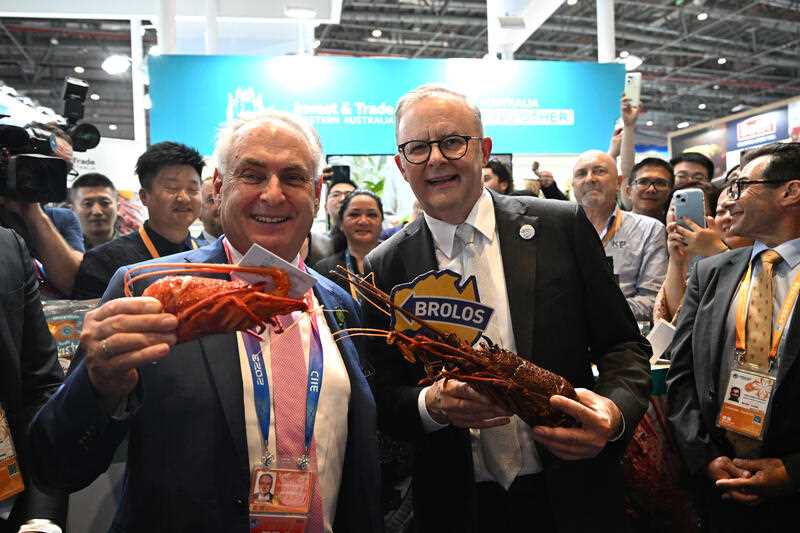Australia is looking to the United States to bolster its trading relationships as China insulates its critical mineral sector and an agreement with Europe is dead in the water.
Although nothing is certain, Trade Minister Don Farrell is confident China will drop tariffs against Australian wine at the end of a five-month review, in a new sign of thawing diplomatic relations.
“I personally don’t think that the Chinese government would start this process unless they believed that there was going to be an outcome, so I am very positive about the outcome with wine,” he tells AAP after returning from China.
He also expects a pathway towards ending trade barriers blocking Australian beef and lobster exports to China to be set out by the end of the year.
The trade minister denies there will be any quid pro quo for lobster and beef with Beijing lobbying Canberra to drop tariffs on its steel.
However he expects the independent anti-dumping commission to lift tariffs on Chinese steel with respect to railway wheels.
But despite the thawing relationship between Canberra and Beijing, the minister is working to diversify Australia’s trade relationships and shore up supply chains, which were heavily strained during the pandemic.
A new trade pact is being worked thorough between more than a dozen countries, called the Indo-Pacific Economic Framework for Prosperity (IPEF), which aims to boost supply chains and put in place backups if critical shortages emerge.
Aligning trading standards and promoting clean energy investment in the Indo-Pacific will also form part of the agreement.
Senator Farrell heads to San Francisco on Sunday for further discussions.
This includes allowing Australia to access medical protective equipment directly from members of the trading bloc so safety apparatus can be delivered on short notice.
IPEF nations include the US, Japan, India, South Korea, New Zealand, Fiji and some Southeast Asian nations that account for 40 per cent of global GDP.
The bloc is billed as a doorway for Washington to come back into the Indo-Pacific trade network after the Trump administration pulled out of the Trans-Pacific Partnership, now known as the Comprehensive and Progressive Trans-Pacific Partnership (CPTPP).
“So much damage was done by Donald Trump to the concept of trade agreements … it was so demonised and unjustifiably,” the minister says.
“Hell would freeze over before the Americans came back in (to the CPTPP), in my view.
“But this is a new agreement, it has the support of both Democrats and Republicans in the United States and I think it’s the first step back by the Americans into the region.”
Asked about concerns the US could pull out of more trade agreements if Donald Trump or another protectionist Republican came to power, Senator Farrell says it will be hard for the new administration to unwind any agreement.
This was why Australia was pushing to have IPEF finalised, signed and stamped by the time the presidential election rolls around in November 2024.
By Dominic Giannini in Canberra



